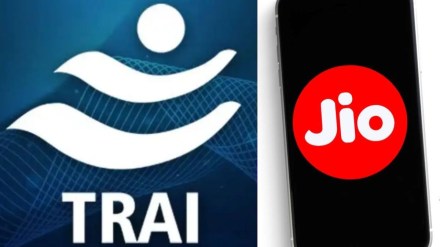Reliance Jio has urged the Telecom Regulatory Authority of India (Trai) to review net neutrality rules, so that consumers can benefit from the technological innovations which can be enabled by 5G standalone (SA) technology.
Basically, what Jio has pitched for is rolling out differentiated tariff products based on 5G network slicing technology, for specific use cases like guaranteed upload speeds or low-latency gaming experiences.
The current net neutrality policy mandates that all Internet traffic be treated equally. This principle prohibits telecom operators from blocking, throttling, or giving preferential treatment to any content or applications, ensuring a level playing field for all Internet users. The policy came into effect in 2016 when initiatives like Facebook’s Free Basics and Airtel Zero were stopped as they were seen not to be in sync with the principles of net neutrality.
However, the introduction of 5G SA now brings with it the capability called network slicing. This technology allows operators to create multiple virtual networks on the same physical infrastructure, each tailored to meet the distinct requirements of different customer segments or applications. For instance, one slice can be optimised for ultra-reliable low-latency communications serving critical applications, while another can deliver high bandwidth for video streaming. In this context, Jio has communicated to Trai the need for regulatory flexibility to permit such specialist services on a shared broadband medium while ensuring that the principle of non-degradation for ordinary consumers remains intact.
Jio has written to Trai that global practices toward net neutrality are in flux, evolving alongside market dynamics and technological advances. For instance, in the US, the Federal Communications Commission (FCC) has repealed strict net neutrality rules, allowing for differentiated service offerings based on market needs. Similarly, the UK’s telecom regulator, Ofcom, has introduced new parameters to net neutrality, permitting premium quality retail offers, specialised services, traffic management, and zero-rating programmes under transparent conditions.
Citing such instances, Jio has urged Trai to adopt a similar nuanced approach and recognise network slicing and managed services as legitimate innovations, which should be allowed to coexist with existing net neutrality obligations. This will enable operators to monetise the distinct advantages of 5G SA technology while continuing to safeguard consumer interests and equal Internet access.
According to analysts, so far, Trai and DoT have indicated that current interpretations of net neutrality do not consider network slicing a violation, as long as other Internet users’ experiences are not degraded. However, they added this still continues to be a regulatory grey area and perhaps Jio is seeking clarity on the matter.
“Considering the controversy and backlash which certain programmes faced in the past, Jio wants full regulatory clarity before it sets out to offer any such package,” an analyst told Fe.
In 2014-15, Facebook’s Free Basics and Airtel Zero were two high-profile initiatives that had sparked widespread controversy around net neutrality, leading to decisive regulatory actions by Trai.
Free Basics by Facebook, launched as part of its broader Internet.org mission, aimed to provide free access to a limited selection of websites and online services, including Facebook itself, Wikipedia, BBC news, basic health information, and weather updates. The service was designed for users on slower 2G and 3G networks who might otherwise be unable to afford full Internet access. However, critics pointed out that Free Basics violated net neutrality because it privileged certain content while excluding others, effectively creating a walled garden that favoured Facebook and its partners.
Similarly, Bharti Airtel had in 2014 launched Airtel Zero, as a sponsored data platform where app developers could pay Airtel to exempt their apps from users’ data charges, allowing customers to access those apps free of cost while other Internet usage was charged normally. Similar to Free Basics, this plan was criticised for creating an uneven playing field that favoured certain apps over others based on financial arrangements rather than user preference.
To safeguard an open Internet, Trai came out with “Prohibition of Discriminatory Tariffs for Data Services Regulations, 2016” which explicitly banned zero-rating practices like those employed by Free Basics and Airtel Zero. According to it, no service provider can offer or charge discriminatory tariffs based on content, preserving the principle that all data services must be charged equally.
Jio executives told Fe that the entire context has changed since then. “Back then it was 3G services and speed was of essence. Now, with 5G, speed is no more an issue, so the entire approach should be reviewed,” executives said.
